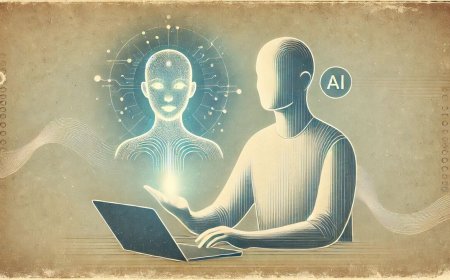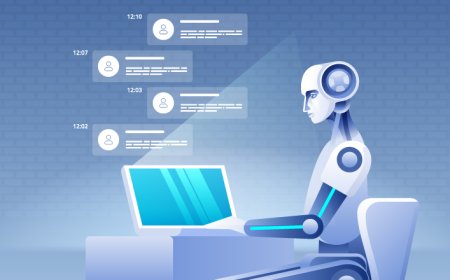The Rise of Quantum Computing: What It Means for the Future
Discover the rise of quantum computing and its future impact. Learn about applications, challenges, and how to prepare for this transformative technology.

Introduction
Quantum computing is a revolutionary technology that promises to solve problems beyond the reach of classical computers. As interest and investment in quantum technology grow, it's crucial to understand what this means for our future. This article explores the basics of quantum computing, its historical development, current advancements, global investments, applications, challenges, and future prospects. By the end, you'll have a clearer picture of how quantum computing could transform various industries and our daily lives.
What is Quantum Computing?
Quantum computing is a type of computing that uses quantum-mechanical phenomena, such as superposition and entanglement, to perform operations on data. Unlike classical computers, which use bits (0s and 1s) to process information, quantum computers use quantum bits, or qubits.
Key Principles
-
Superposition: Qubits can be in multiple states at once, allowing quantum computers to process a vast amount of possibilities simultaneously.
-
Entanglement: Qubits can be entangled, meaning the state of one qubit can instantly affect the state of another, no matter the distance between them.
-
Quantum Bits (Qubits): The basic unit of quantum information, qubits enable quantum computers to perform complex calculations much faster than classical computers.
Examples of Quantum Computing Systems
Several companies and research institutions are developing quantum computing systems. For instance, IBM has its IBM Q Experience, and Google has its Sycamore processor. These systems are still in the early stages but show promising potential.
The Rise of Quantum Computing
1. Historical Background
The concept of quantum computing emerged from the principles of quantum mechanics, which were developed in the early 20th century. Key milestones include:
-
1980s: Richard Feynman and David Deutsch proposed the idea of quantum computers.
-
1990s: Peter Shor developed an algorithm that could factor large numbers exponentially faster than the best-known classical algorithms.
-
2000s: Experimental quantum computers began to be developed, leading to the creation of small-scale quantum processors.
Key organizations like IBM, Google, and various universities have been at the forefront of this progress.
2. Advances in Quantum Technology
Recent years have seen significant breakthroughs in both hardware and software. Quantum ecosystems are growing, with collaborations between academia, industry, and government. Integration with other technologies like AI and IoT is also underway, enhancing the capabilities of quantum systems.
3. Global Investments in Quantum Computing
Governments and private sectors are investing heavily in quantum computing. For example, the U.S. government has allocated billions of dollars to quantum research through initiatives like the National Quantum Initiative Act. Tech giants like IBM, Google, and Microsoft are also investing significantly in quantum technology. Additionally, numerous quantum startups are emerging, contributing to the field's growth.
Applications of Quantum Computing
4. Healthcare and Drug Discovery
Quantum computing can accelerate drug discovery by simulating molecular interactions more efficiently than classical computers. This could lead to faster development of new medications and personalized treatments. Case studies have shown that quantum algorithms can significantly speed up the process of identifying potential drug candidates.
5. Finance and Cryptography
In finance, quantum computing can enhance financial modeling and risk analysis. However, it also poses a threat to traditional encryption methods, as quantum computers could potentially break them. This has led to the development of quantum-safe cryptography to protect data in the quantum era.
6. Supply Chain and Logistics
Quantum computing can optimize complex supply chains and logistics by processing real-time data more efficiently. This could lead to significant improvements in delivery times and cost savings. Examples include using quantum algorithms to optimize routing and inventory management.
7. Climate Science and Sustainability
Quantum computing can model climate systems more accurately, leading to better predictions and strategies for mitigating climate change. It can also optimize renewable energy systems, helping achieve sustainability goals more effectively.
Challenges Facing Quantum Computing
8. Technical Hurdles
Qubits are extremely fragile and prone to errors, making it challenging to maintain their quantum states. Scalability is another major issue, as building large-scale quantum computers is technically demanding. There is also a need for more advanced quantum algorithms and software to fully utilize quantum hardware.
9. Ethical and Security Concerns
Quantum computing raises concerns about data privacy and cybersecurity. The ability to break traditional encryption methods could lead to significant security risks. Ethical considerations in quantum AI applications are also important, as the technology could be used for both beneficial and harmful purposes. Global standards and regulations are needed to address these issues.
10. High Costs and Accessibility
The high costs associated with quantum research and development limit access to quantum resources, particularly for smaller entities. Strategies to democratize quantum computing, such as quantum cloud services, are being developed to make the technology more accessible.
The Future of Quantum Computing
11. Predictions for the Next Decade
In the next decade, we can expect a transition from research to real-world applications of quantum computing. Quantum cloud services will expand, making quantum resources more accessible. Hybrid classical-quantum systems will also be developed, combining the strengths of both technologies.
12. Quantum Computing and Artificial Intelligence
Quantum computing has the potential to enhance machine learning and AI capabilities significantly. Quantum-powered AI could solve complex problems more efficiently, but it also comes with potential risks and opportunities that need to be carefully managed.
13. Quantum Computing for Everyday Life
As quantum computing advances, we can expect to see more consumer applications. The long-term impact on industries and societies will be profound, with implications for education and the workforce. Preparing for these changes will be crucial for businesses and individuals alike.
How Businesses Can Prepare for Quantum Computing
To stay ahead, businesses should:
-
Stay Informed: Keep up-to-date with the latest advancements in quantum computing.
-
Invest in Research: Partner with quantum research institutions and invest in quantum technology.
-
Build Quantum-Ready Teams: Develop expertise in quantum computing within your organization.
Conclusion
Quantum computing is a transformative technology with the potential to revolutionize various industries. As it continues to advance, it's essential for businesses and individuals to embrace and prepare for the quantum future. The opportunities and challenges ahead are vast, but with the right preparation, we can harness the power of quantum computing for a better tomorrow.
Frequently Asked Questions (FAQs)
1. What is the current state of quantum computing?
Quantum computing is still in its early stages, with significant research and development underway. Several companies and research institutions are developing quantum computing systems, and there have been notable breakthroughs in recent years.
2. How does quantum computing differ from classical computing?
Quantum computing uses quantum-mechanical phenomena like superposition and entanglement to process information, while classical computing uses binary bits (0s and 1s). This allows quantum computers to perform complex calculations much faster than classical computers.
3. What industries will benefit the most from quantum computing?
Industries that will benefit the most include healthcare, finance, supply chain and logistics, and climate science. Quantum computing can accelerate drug discovery, enhance financial modeling, optimize logistics, and improve climate predictions.
4. Are there risks associated with quantum computing?
Yes, there are risks associated with quantum computing, particularly in the areas of data privacy and cybersecurity. Quantum computers could potentially break traditional encryption methods, leading to significant security risks.
5. How can individuals and businesses learn more about quantum computing?
Individuals and businesses can learn more about quantum computing by staying informed about the latest advancements, investing in quantum research, and building quantum-ready teams. There are also numerous resources available online, including articles, webinars, and courses.
What's Your Reaction?








































